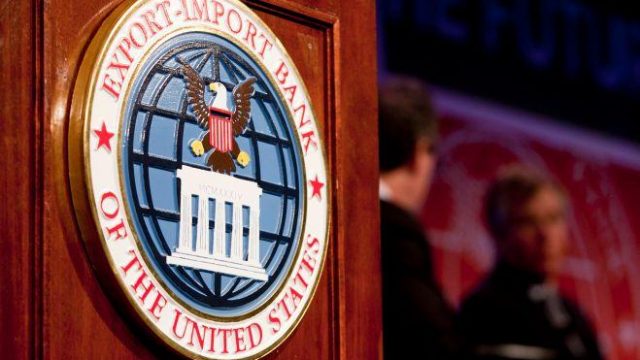Mark Pfeifle: Corporate Welfare Leads to Crazy Claims

North Dakotans can sleep safe tonight. The U.S. Export-Import Bank in Washington, D.C. is defending America from its enemies abroad.
Sound ridiculous? It is. Yet that’s the gist of a massive—and largely unknown—lobbying campaign underway in Washington. As part of this effort, twelve high-ranking government officials, including former Secretary of State Madeleine Albright and former Secretary of Defense William Cohen, recently wrote a letter to Congress in which they claimed that the little-known Export-Import Bank is a “critical element” of America’s national security. They pleaded with North Dakota’s representatives and senators to renew the bank’s charter before it expires next month. If it isn’t, the bank will be eliminated.
Only in Washington can special-interest handouts be “critical” to defending America. The bank is an 80-year-old New Deal relic that uses taxpayer money to help foreign businesses purchase American products. Over the past ten years, it has authorized nearly $215 billion in taxpayer-backed financial support, the majority of which only benefitted a miniscule number of mega-corporations. Yet despite spending all this money, Ex-Im still only supports 0.03 percent of North Dakota’s exports.
This isn’t a “critical element” of anything, much less America’s national security. Ex-Im is little more than corporate welfare, hence the massive lobbying campaign to keep the bank alive.
It shouldn’t come as a surprise that special interests will say almost anything to keep bilking North Dakota taxpayers. What is surprising, however, is the Ex-Im Bank’s beneficiary list. Despite what its lobbyists and supporters claim, this federal agency sometimes supports companies and countries that undermine America’s national security interests.
[mks_pullquote align=”right” width=”300″ size=”24″ bg_color=”#000000″ txt_color=”#ffffff”]Despite what its lobbyists and supporters claim, this federal agency sometimes supports companies and countries that undermine America’s national security interests.[/mks_pullquote]
Don’t take my word for it—look at the bank’s balance sheet. In the past three years, Ex-Im sent over $1.2 billion in taxpayer-backed loan guarantees to a state-owned Russian company known as VEB. This bank was targeted by American sanctions last year.
No wonder: VEB works with another state-owned company, Rosoboronexport, that handles the vast majority of Russia’s arms exports. It’s even an arms supplier for both Syria and Iran—two countries that aren’t exactly known for defending America’s interests.
This isn’t an outlier. American taxpayers, via the Export-Import Bank, have sent billions of dollars to state-owned companies in Russia, China, and plenty of other less-than-democratic regimes.
It’s a mystery why businesses that report to the Kremlin and the Chinese General Secretary need your money and mine. It’s also a mystery how supporting these countries’ crony capitalist models protects America on the international stage.
The deeper you dig into Ex-Im’s records, the more pronounced these problems become. It turns out that corruption and graft are recurring problems. Last month, the bank’s inspector general reported that nearly 50 people have been convicted of defrauding Ex-Im in just the past five years. More than 30 corruption and fraud investigations are ongoing.
Then there’s the bribery. It stands to reason that a federal agency like Ex-Im would suffer from business-government collusion—taxpayer cash is an enticing prospect, after all. This helps explain why the bank suspended or removed four officials last year as part of an investigation into alleged gifts, kickbacks, and preferential treatment for specific companies. One of the four employeespleaded guilty to accepting bribes just last month.
Why are North Dakota taxpayers funding this fiasco? When the Export-Import Bank’s charter comes up for debate in the next few weeks, Congress should remember that it’s anything but a “critical element” of America’s national security. Washington shouldn’t be spending taxpayer money on corporate welfare—especially when it goes to companies and countries that are either corrupt or are actively working to undermine America.




